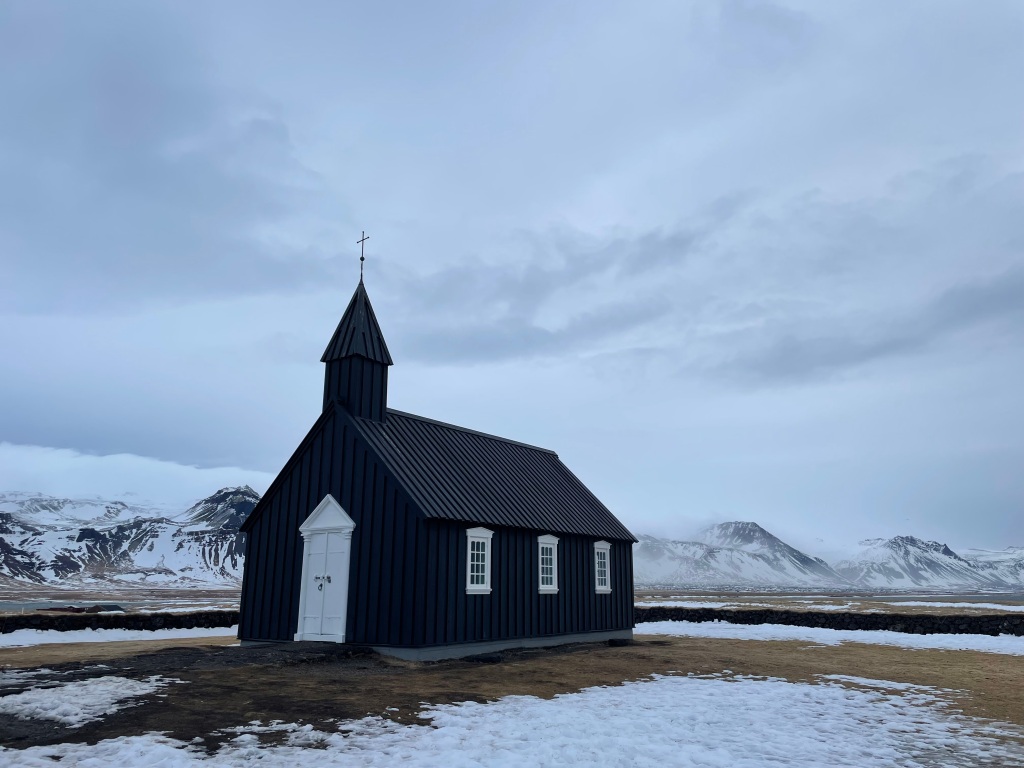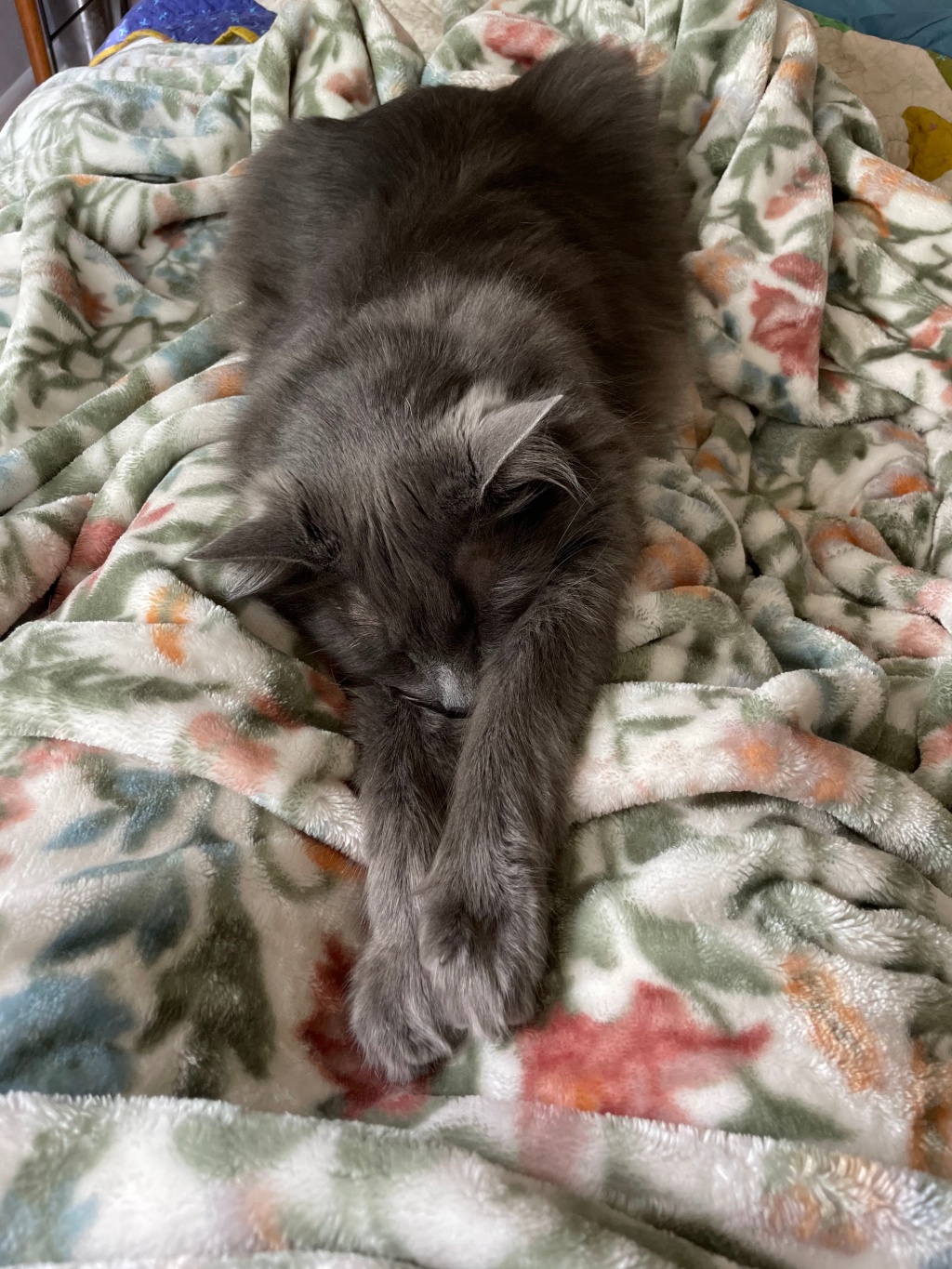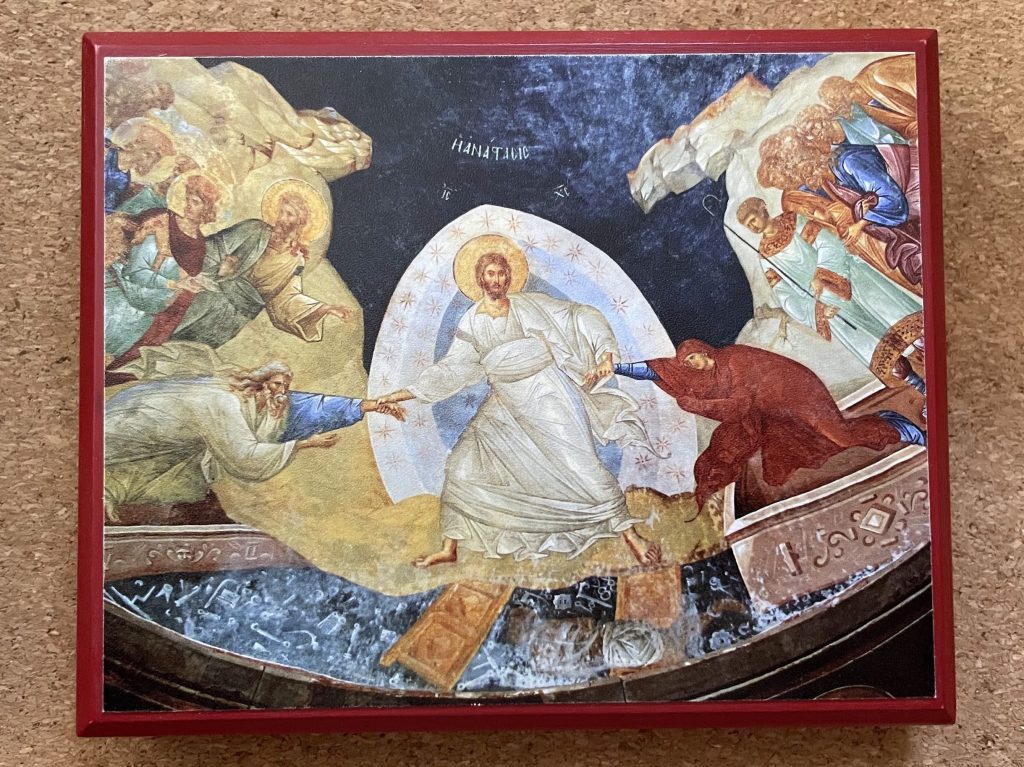‘Not again, please, I just need to start the day without this nagging pain…’, I think to myself for the hundredth time. Gritting my teeth I pray, ‘Seriously, can you please take this away?’
The answer seems to be ‘no’, because I’ve prayed that prayer more times than I can count. I’ve long since abandoned the notion that healing is a matter of faith alone; some of the most faithful people I know live with chronic illnesses. So it doesn’t seem to be a matter of lack of faith or not praying enough or the right way.

There will always be debate about suffering: why do we suffer, does God allow it and if so why, what about the young and innocent, and the list goes on and on. I know I’ve wrestled with these questions on and off over the years, sometimes in a good place with the concept and other times in a state of anguish or even anger. I don’t think there is one single answer that will satisfy all my questions about suffering. I don’t think I’ll ever be able to figure out just exactly the why and how of it all or to calculate who gets chosen to suffer and who escapes it. I’ve tried, and it is enough to drive one mad.
I don’t have answers to any of those questions. I’ve searched and prayed and read and journaled, trying earnestly to get my mind around what God is doing in this world through allowing suffering. Satisfactory answers elude me. I need a different strategy than trying to ‘understand’ physical suffering intellectually. Relying on logic to explain chronic pain is a dead end.
I think I need to stop looking externally at the turmoil pervading every corner of this world. I need to turn off the news and instead turn inward to investigate what God is doing within my own heart. Yet no sooner has this thought popped into my head than it is met with rebuttals.
After a lifetime of Christian exhortation to reach the lost, love the poor and be the hands and feet of Jesus in a suffering world, turning inward might feel like a cop out. Looking within myself more and at the world around me less might seem like giving up on the great commission. That’s probably how I would have perceived it just a decade ago. My younger self might have said: “Don’t waste your time wallowing in your own pain and suffering, or even trying to understand it. The best cure is to serve others! Get out there, volunteer, go on a mission trip, serve at church and focus OUTWARD! That’s what Christ did, after all! He healed the sick and suffering, and we are called to do as He did! His healing work in the world happens through YOU and other faithful Christians who do His will!! So carry your cross, bear your burden of suffering and push forward in serving God and His Kingdom!”
Before moving on, a quick disclaimer: To be fair, I am all about self-care and life balance, so turning off the news and the noise can be truly therapeutic, and pulling back from too many commitments may very well be the next right step for many people. But that’s not the primary point I wish to convey here. Rather, I am addressing the tendency for zealous Evangelicals to focus on the brokenness around them to the neglect of the brokenness of their own bodies and souls. Serving and outreach will always be important. But what doesn’t work is using service, ministry, volunteering and outreach as a distraction for the work that needs to happen within the soul of the one suffering from chronic pain. Distractions are fleeting; sitting with pain is the true work we are called to.
Looking back with grace and love, I can see that I was doing my best to manage my personal physical pain in the most faithful way I knew how: through outward service. I sought to translate my pain into good work for God’s Kingdom. I am convinced God accepted my offering and drew me closer to Himself as I strived to serve Him and others while giving my ailments to Him. That’s just one of the countless things I love about God, that He accepts us right where we are, with whatever we are able to offer Him at that time. He doesn’t demand we be anywhere other than where we are right then, in that exact moment when we come to Him.
When I reflect back on the last two decades I find that I had two primary prayers for dealing with pain: 1) Gratitude to God for the suffering Jesus endured for my sake, and 2) Intercession for the suffering people around the world. My prayers might have sounded like this: 1) “Wow, Jesus was scourged and beaten and crucified… my pain is nothing in comparison… thank you, Jesus, for your sacrifice!” or this, 2) “God, be with all those suffering from similar ailments around the world… bring them relief and healing and your comfort.” I relied on these two prayers to a loving God who I believe accepted them and blessed me for turning to Him in my hour of struggle. There is nothing wrong with these prayers at all, and I still use them as ways to connect my own embodied life to that of my Lord’s earthly life, and to cultivate compassion for the millions suffering from pain around the world. I suffer, others suffer, and God Himself became man and suffered. Truly, I am in good company.
But did you catch it? Did you notice how, even though the two prayers are 100% valid, they both focus outward? Outward in gratitude, and outward in intercession. There was a third prayer I prayed. It was for God to heal and take away my pain or discomfort. If I was feeling particularly pious that day I might have prayed for strength to endure it, but usually it was just “please, please, please grant me relief!”. And since prayers like that start to sound whiney after a while, I relied heavily on the prayers of gratitude and intercession as a way to connect to God in my pain, hoping these would make me seem less needy in God’s eyes.
All three prayers have a place at the table. And yet somehow I sense a deeper invitation, like there’s still something missing. Even though my prayers and strategies have carried me over twenty years, it seems like there’s more to dig and mine here. Somehow I think if I push further into it I might uncover buried treasure. My go-to prayers of gratitude and intercession aren’t cutting it anymore: I’m grateful for Christ’s suffering, I wish health for others, and I do genuinely desire healing. But after all three prayers, I myself remain unchanged.
I think there is a call to go deeper. But what more is there? What am I missing?
As I often do since my cross-country trek, I turn my thoughts to the saints. So many of the great saints I love and admire suffered greatly in the body and were purified somehow, probably by being helpless and fully dependent on God. For as much as I despise physical pain, it appears to possess a sanctifying power if we allow it. So, how do I allow pain to sanctify me? Maybe that’s the difference between the saints and the rest of us, that missing piece I’m trying to articulate. They had the same gratitude and intercession that I do, but they also had something else, something I don’t yet have: an interior transformation.
Where’s the breakdown? What exactly do the saints have that I lack? What is it they know that I do not yet know, and how do I get it?
I want to be like them, but I also want to feel better. I want to be rid of my pain and do all my daily activities and commitments without a care in the world. Don’t we all? I find myself thinking, “Is this the year I find the panacea for all my ailments and finally put pain behind me? Can I find the perfect diet or lifestyle to heal it all? Maybe that supplement, maybe that health coach, maybe that medical professional…”
If living pain-free is my goal and all my effort is targeted toward that end, I’m afraid I will be sorely disappointed. I’ve come to the conclusion that there is no single answer or solution that will magically cure me. There is no magic pill that will take away my ailments and fend off aggravating pain forever. There is no specialist, no matter how gifted a healer, who can promise to heal my body once and for all. And I’ve learned the hard way that if anyone tells you that their program, their pill, their diet is the magic one that will cure it all?… proceed with caution. Because no matter how well-intentioned, well-educated or experienced they are promising something they can’t ever deliver.
To take it further, I’ve personally concluded that those who say their church, their prayer style, their connection to the Holy Spirit can call down healing from heaven is gravely overestimating their authority. That probably doesn’t sit well for passionate Pentecostals and having identified as one myself for quite a while, I understand. I wouldn’t say this if I didn’t have personal experience with the charismatic movement and decades of participation and observation across multiple denominations to convince me. I’ve seen too many times the fervent prayer of earnest believers fall flat, sowing seeds of doubt that God is either deaf or simply doesn’t care. Just like the health zealots who believe their program can cure someone sick, these beloved brothers and sisters in Christ are promising something they just can’t deliver.
Why can’t the prayer warriors and health fanatics deliver on the promise of healing? Why do I pray for healing for myself and still deal with chronic health issues? And why do my prayers of gratitude and intercession seem to do very little for me or anyone else? After 20 years of trying to answer these questions I’ve come to a place of peace with an answer that makes more sense than any other answer I’ve been given:
Christ didn’t come to take away our pain. He came to work transformation within us and to make us saints.
Christ didn’t come to heal my mortal body, but to heal my soul and raise me to new life in Him. We want to believe He came to heal and fix our flesh because we read the accounts of the leper, the lame man and the blind man receiving release from their temporal suffering, and we want that, too. This is only natural and truly human, to want liberation from the tyranny of our broken bodies and our broken world. Without knowing it, we yearn for the glorified bodies we are promised, bodies just like the one Christ displayed when he rose from the dead and walked among us.
We yearn to be made whole, and that may be why we resonate with the leper, the lame and the blind from the Gospels. “Yes,” we say, “we also are suffering! We, too, want healing!” We say this in earnest longing, in hopeful prayer that the God who can heal anyone from any ailment will come and heal us. But as natural as it is to pray for healing on a physical level, we might be missing the invitation to enter into a deeper reality and a deeper relationship with God.
We might be tirelessly chipping away at impenetrable rock when nearby is a vein of gold mere millimeters under the surface.
“But Jesus worked actual miracles,” I hear some protest, scratching their heads, “so it stands to reason that He has the power and willingness to heal people, because He cares for us and that means our bodies.”
I really think the miraculous healings by Christ were tangible, external representations of intangible, inner transformations. The physical healings weren’t the point, but pointed to the real work being done: inner healing that defied language and definition and could only be understood by the healing of the physical body. Moreover, in trying to understand the inner work Christ did within these men I think we too often simplify the interior miracle by saying Christ forgave their sins and THAT was what happened inside! Like God took a handheld vacuum and sucked out all the sin and left them squeaky clean and that’s why they jumped for joy.
The inner transformation is what I am struggling to define or grasp, and it is what I want more than anything. With little more to go on than my own experience of pain and of God, this is the best way I can understand it for now.
The leper, the lame man and the blind man were physically healed by the power of the Son of God, to the amazement of the onlookers. Yet while Christ healed their physical bodies He simultaneously healed the most important organ of all – the invisible organ about which He says, “let those who have ears, let them hear; let those who have eyes, let them see”. What could this mean? Different Christian traditions use varying terms to try to capture the essence of the idea that humankind has a kind of inner organ or ability to perceive God, but that this is clouded by the broken and sinful world. I’ve encountered terms including heart, soul, spirit, nous, spiritual intellect and other descriptors that attempt to narrow in on the elusive concept. I don’t know enough to try to distinguish between all these, nor do I think that nailing down the most precise definition is what will get me closer to healing this damaged organ of my own. Until I learn more, I just use the terms interchangeably and in a way I can understand.
Christ’s healing was twofold for each man: leper, lame and blind. He used the transformation of the flesh as a visible symbol of the invisible work being done in each one of them, giving them eyes to see and ears to hear. The healing of the body was secondary, a testimony and visible witness to the healing of the wounded, lame and blind soul. Yes, these healings were tangible, an incredible foreshadowing of Christ’s resurrection and the resurrection to come of our own bodies, made new in some incomprehensible way. These healings were real and objective, quantifiable and verifiable and yet a confounding mystery to anyone who tried to explain them.
But equally true and even more important was the healing of the soul of each recipient of Christ’s touch. This was His entire purpose. The external healing turned heads, but the internal healing stole the show. I think the crowds followed Jesus from town to town because he healed the flesh. But those who saw the inner transformation of those who Jesus healed followed him as disciples.
In my imagination I think of each man’s reaction to his healing encounter with God Incarnate. I see the leper, his open wounds now smooth with new skin, pausing to realize that Christ has begun to clean with tender care the festering wounds of his heart, growing from nothing new tissue even there. The lame man, feeling earth on the soles of his feet and pulsing waves through his atrophied muscles, realizes that his organ of faith was truly atrophied and stunted; even now God is working the muscle of his heart as he learns to use it again. The blind man, now with full, sensitive eyes behind blinking eyelids, sees the sun and light all around; he now understands that his real blindness was in his heart, darkening his spiritual eyes.
As the beautiful hymn of my heritage suggests,“[I] was blind but now I see” refers profoundly to spiritual vision. It never was primarily about the miracles and physical healings Jesus did. That’s why the Gospels report that the multitudes followed Jesus all over the countryside: they saw the outward miracles and wanted more of them. And who could blame them? Jesus gave them miracle after miracle but his real purpose was sparking the inner healing within those who followed him, starting with repentance.
I imagine each man reflected on his miraculous healing each day for the rest of his life, especially after visiting the village market. The former leper, now sitting comfortably after a long day socializing in the market from which he was formerly shunned may have thought “All those hours spent tending my sores while my heart was festering inside me… this was the real wound that was healed.” The formerly lame man, exhausted from walking up and down the market streets on new legs might have thought “While my body sat motionless so did my spirit.. it’s like I have new motion and movement within my heart I never felt before.” The formerly blind man, gazing at a flickering fire after a long day taking in the bustle and brilliant colors of the market may have thought “It is astonishing… I truly was blind, but blind in my soul. I’ve never seen so clearly as I do now, I can’t explain it.”
Jesus said it best himself to Photini, the name tradition holds for the Samaritan woman at the well (John 4:5-42). She sought to quench her physical thirst but her parched soul was paramount to Christ. As He explained this, her dormant organ of spiritual sight and understanding was revived. Her eyes were opened little by little with each small verbal exchange with God Incarnate until she understood: “My heart is the organ in most need, and here I spend my time slaving over the impulses of the flesh… water for drinking is necessary for life, but Living Water revives my parched spirit unto true life!” Photini repented and transformed her whole village. Tradition also holds that her inner transformation was so profound that her family was converted; she and her two sons went on to preach the gospel as missionaries and were later brutally martyred by Nero in around year 66 (Read more about Photini here). This woman, who never experienced a physical healing but rather a spiritual healing, went on to impact innumerable souls.
Seeing Christ’s healings through spiritual eyes helps me as I battle my own ailments. I don’t want to wait for physical healing before I experience healing for my soul. I can’t wait until I feel better in my body to be truly transformed. I can’t let my prayers for healing and relief of my suffering overshadow and extinguish the silent work God is doing in my soul through physical suffering. I don’t want to pursue physical healing to the exclusion of inner healing. And I don’t want to avoid or distract myself from my pain even if it is with good deeds and serving or praying for others.
Beseeching God for relief of our physical pain is only natural. Begging for healing or even demanding God heal our bodies misses the point entirely. The point is inner healing of wounds to the heart, soul, spirit, nous or spiritual intellect.
When the eyes of the heart are healed we will see with new vision and clarity.
I’m not sure how to get from where I am now to where I want to be regarding this healing of the inner organ of the soul. I suppose it will be through shifting my prayers from those of gratitude, intercession and physical healing to prayers asking for inner healing. The next time my back aches and I groan in frustration, may I ask God to transform the groan of my mouth into the groan of my heart for closer union with Him. Next time my head pounds and throbs and fills my entire vision, may I pray for a pervading and inescapable experience of God that pulses through every fiber of my being. Next time I’m sick when everyone else escaped the bug, may I pray for a stronger immune system deep within my soul, and the ability to ward off the darts of the enemy of my life.
For all who live with pain, suffering or chronic conditions, I truly believe there is an invitation to something deeper, some hidden reality that hides just below the surface. Instead of seeking water to quench our thirst and sooth our physical pain, I pray we can pursue the Living Water that can heal, transform and well up within us unto eternal life, even as we bear with our pain each day.






Leave a comment